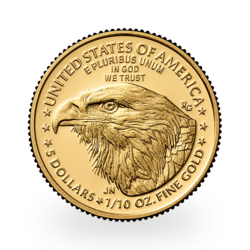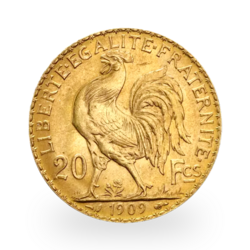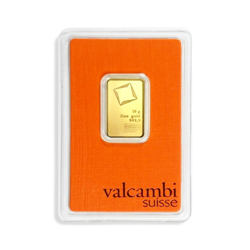“There is something vaguely troubling when the unthinkable becomes routine”.
This is what Claudio Borio of the BIS (Bank for International Settlement) commented on the $17 trillion of debt with negative interest. He went on to say: “Even at the height of the Great Financial Crisis this would have been unthinkable.”
But this is where the world is today, unthinkable debt, unthinkable markets, unthinkable risk and unthinkable leaders who have totally lost control and by their actions are increasing risk exponentially.
FIRST GOLD KINGS – MIDAS AND CROESUS
It was very different in the days of King Croesus of Lydia (now Turkey) who died 547 BC. It is from him we have the expression “Rich as Croesus”. One of Croesus ancestors was King Midas who was given the gift that everything he touched turned to gold. This was a wonderful gift until he realised that absolutely everything he touched turned to gold, even his food. Since this was quite an unpractical gift, he was given the chance of getting rid of his gift by washing it off in the river Pactolus. From that point on the river was full of gold. It is from this river that Croesus derived most of his gold and also from gold mines. The Lydians are said to be the first to have minted gold coins.
Sadly, Croesus soon discovered that wealth is ephemeral. Persia conquered Lydia and Croesus lost his wealth including the gold. But as long as you can hold on to it, gold is eternal wealth and nature’s currency however it is clearly critical to hold on to it and store it in a way that no one can take it away from you. This is why it is often best to store gold in a safe jurisdiction and not in the country where you reside, especially if you can’t trust the government in that country.
DON’T HOLD GOLD AT HOME, IN ETF, IN BANK INCL. BANK SAFE DEPOSIT BOX
Gold held for wealth preservation purposes must be held in physical form and outside the banking system. The more counterparties between yourself and your gold, the higher the risk. But there must always be one counterparty. If you hide your gold in a hole in the ground, the hole is your counterparty. Someone might steal the gold or threaten your wife or children to find out where the gold is hidden.
When you hold gold to protect against all the risks in the world, you clearly don’t want to hold it in a bank. We have seen so many examples of the bank not having the physical bars when clients intended to move the gold from the bank vault to private vaults. So even when the banks tell the client they have allocated physical gold, the gold is sometimes not there. Until now, the bank has rectified the situation by buying new bars. But one day when the system is under pressure, there might be no gold available or the bank is under financial distress and is not in a position to buy new gold.
Gold in personal bank safe deposit boxes is not advisable either since you might not get access to it for a very long time if the bank closes. Also, the contents of a safe deposit box is not insured and the bank does not take responsibility, if the contents is stolen. There are also multiple examples of safe deposit boxes being drilled open by the authorities for various reasons.
Many gold investors buy gold ETFs. This is a very big market with 2,800 tonnes held in total by gold ETFs. This represents a value of $135 billion.
Both institutions and wealthy individuals use gold ETFs to invest in gold. But since gold is the ultimate wealth preservation assets it should not be held in paper form.
Let me explain some of the drawbacks with gold ETFs:
- It is paper gold. All the investor has is a piece of paper saying he owns X shares in the ETF.
- The investment is held within the financial system and in case of a default, the investor might not get his investment back.
- In theory, the ETF should have 100% gold backing, but in reality very few do. If you read the fine print, they don’t have to hold the physical gold but can have a commitment or IOU from a bullion bank.
- Recent trading in the physical market proves this point. In August, gold ETFs increased their holdings by 122 tonnes or $6 billion. This is an increase of 5% which is substantial for one month. The total increase for the period June to August was 312 tonnes or 12%. Yet, Swiss refiners have reported extremely low physical outflow and no buying from ETFs during that period.
- Gold ETFs normally never buy in the open market or from refiners. So where do they get their gold from. Well it is really just book entries. The custodian of the biggest gold ETF, called SPDR or GLD, is HSBC bank. Sub-custodians are LBMA banks like JP Morgan, Barclays or even the Bank of England.
- These custodians also hold Central Bank Gold. So when the ETFs need to acquire additional gold, like in August, the custodians just do a few book entries, using the gold they hold for central banks. It is very likely that some or much of this gold is double counted and belongs to more than one party. This is why there is no physical movement from refiners.
- Most ETFs don’t allow that clients take physical delivery. In theory, a holder of at least 100 GLD shares can take delivery. But this means a minimum of $14 million. GLD also has the right to settle in cash.
- GLD gold held with sub-custodians cannot be inspected.
- GLD gold is not insured.
It is extremely difficult to understand that major investors can accept to hold a wealth preservation asset and insurance against a rotten financial system in paper form like a gold ETF. If there is a financial crisis they are unlikely to get their hands on neither the gold nor the cash that the gold represents.
Why take this risk when you can hold physical gold outside the financial system in for example the safest vault in the world in the Swiss Alps. The holder of the gold holds it directly in his name with direct access to the gold. Also, the cost is similar to GLD but it includes insurance and the investors own physical gold that he has direct access to.
CRYPTOS ARE NOT WEALTH PRESERVATION
Cryptos and Bitcoin are often mentioned as the new gold. Especially the younger generation today often believe that cryptocurrencies is the safest money you can hold as well as the best way to avoid government control. A cryptocurrency can have some advantages as a method of payment. But there are so many drawbacks that make it totally unsuitable as wealth preservation.
Here are some of the problems with cryptos:
- A cryptocurrency is an electronic entry on a number of computers. As such, it can be hacked or lost. Over $1 billion was stolen in 2018. In 2019 so far, $4 billion has been stolen. Some of that might be recovered.
- If a crypto is stolen or lost, it is gone forever. You won’t get it back and there is no insurance. Some exchanges do have insurance but it is unclear if effective.
- Yes, you can take your crypto offline into cold storage, but every time you put it back online for transactions, you are exposed.
- Cryptos are often compared to gold but we must remember that total market cap of all cryptos is $215 billion against total value of all gold in existence is $8.5 trillion.
- Governments are unlikely to ever allow cryptos to be an alternative to fiat (paper) money without their approval and control. Cryptos can easily be banned by closing down all exchanges and making all trading illegal.
- Yes if it is banned, a black market of peer to peer trading would still be possible even though illegal. Conversion to fiat would be made a criminal offence and every illegal transaction could be declared null and void. So if you bought a house with cryptos, it would be confiscated.
- In the end, governments are likely to ban private cryptos and issue their own to replace current paper/electronic money. This will be a wonderful way for governments to totally control all money, to tax every transaction directly and to turn off the system or certain accounts at will. This is a very likely development in the Big Brother is Watching era we are currently in.
- One of the biggest threats to cryptos is Google’s and other technology firms ability to decrypt it. Most cryptos, including Bitcoin, uses 256-bit encryption. Google can already break 53-bit encryption and another firm 128-bit. Google expects to break 256-bit encryption within a couple of years maximum and then 400-bit etc.
- With new Quantum Processors a computing task that would have taken 10,000 years on a supercomputer now takes a mere 200 seconds with a Quantum Computer.
- Thus any method of encryption could be worthless within the next few years. It is obviously likely that encryption will become more advanced but so will Google’s Quantum processors ability to break these advanced systems.
- So Bitcoin and other cryptos might be obsolete in the next couple of years and so will all other encryption including military and government secrets. Instead, Google will be ever more powerful controlling all systems and governments. With AI (Artificial Intelligence) and robots, mankind will have an ever diminishing purpose and possibly even be extinct in the future.
- Quite a frightening development but certainly possible.
GOLD AND SILVER TO REACH MULTIPLES OF CURRENT PRICES
Let’s go back to the present and look at the short term and the areas which we normal mortals can influence.
So I have in this article explained that from a wealth preservation perspective, neither gold ETFs nor cryptos can function as a true insurance against the severe problems which the world will encounter in coming years.
Physical gold and silver, safely stored, is certainly not a panacea for all the problems which the world will encounter in the next few years. But it is the best economic and financial insurance that you can hold today in a world where most assets will crash.
As I have made clear in recent articles and interviews, gold and silver has started the next strong up-leg towards multiples of current prices. The small correction we are seeing currently will end shortly. Thereafter, we will see a fast move in the precious metals that will surprise most people.
Investors must not focus on price but instead on the importance of holding protection against a financial system which is unlikely to survive in its present form.
Original source: Goldswitzerland
Reproduction, in whole or in part, is authorized as long as it includes all the text hyperlinks and a link back to the original source.
The information contained in this article is for information purposes only and does not constitute investment advice or a recommendation to buy or sell.

















